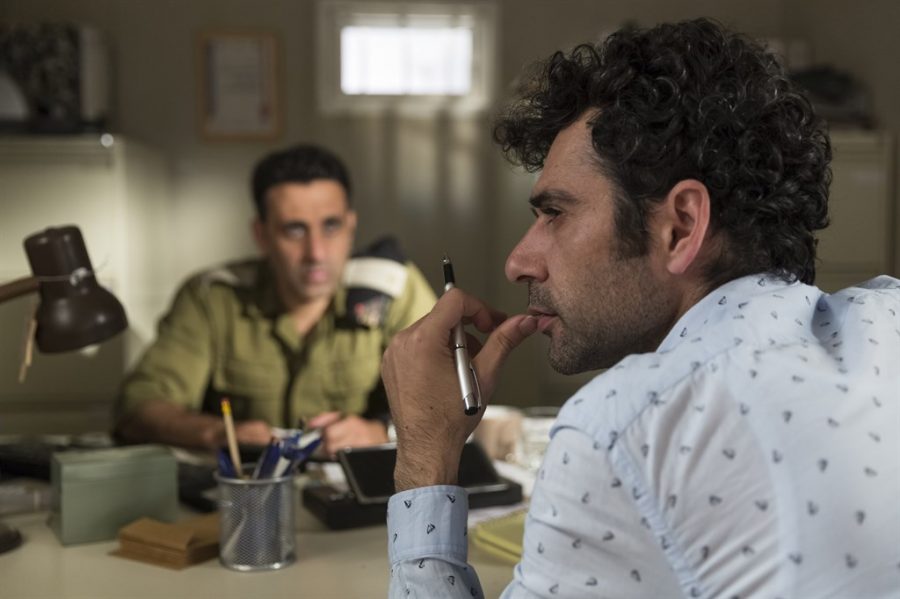“Tel Aviv on Fire” is reflective of the experience of writer-director Sameh Zoabi and his experiences as a Palestinian living in Israel. Protagonist Salam (Kais Nashef), is given a production assistant job on his uncle Bassam’s (Nadim Sawalha) TV show, where his initial responsibility as an assistant morphs into him becoming an ill-equipped full-time writer. The show is a romantic soap opera focusing on the years before the 1967 Arab-Israeli Six-Day War, during which a Palestinian spy, Manal, played by French actress Tala (Lubna Azabal), is tasked with seducing an Israeli general.
A Palestinian living in Israel, Tisch professor Zoabi has had to navigate his different identities, and that is reflected onscreen. Salam shares part of this conflicting identity in the film. He is a Palestinian who works in Palestine on a Palestinian show but passes twice a day through an Israeli checkpoint where he is often pushed around by surly guards in order to reach his home in Israel.
His frustrations, even in the format of a comedy, simmer to the top in ways that feel nearly autobiographical. Salam’s bumbling, deadpan navigation of his complicated situation is endearing.As Salam becomes increasingly invested in the show, he is continually stifled by the conflict of his environment. He has to please his Palestinian backers, his PLO veteran showrunner uncle, the Israeli audience, the Palestinian audience and even checkpoint guard Assi (Yaniv Biton), who pushes their initial relationship into a one-sided use of his literal gate-keeping power over Salam. His passage between Ramallah and Jerusalem becomes dependent upon the outcome of the show.
Salam’s own gritty and confused reality, no doubt informed by Zoabi’s, is funnelled into a simple soap-drama — an exaggerated artificial warzone. Salam’s work, exponentially more subtle and meaningful than the scope of daytime television, is complicated by a seemingly never-ending conflict. Salam and Zoabi both try and shift the narrative away from this perspective binary to highlight the reality of the situation. Satirization abounds, such as when Salam passes off canned hummus as the “authentic Arab hummus”
It’s hard to overstate how vital the comedic aspect of the film is to effectively tackle the political reality of the region. Through the cheesy stylings of a soap opera and hammy deliveries, “Tel Aviv on Fire” pokes fun at the mutual love for certain things: a soap opera, a pot of hummus and romantic love. More serious events are alluded to as well, such as Salam’s traumatic memories as a child during the First Intifada, a nod to the trauma that has shaped the director.
“Tel Aviv on Fire” and its nomination by Luxembourg at the Academy Awards bring texture to a confused identity and a raging conflict. Though the finale is a bit too saccharine as Salam and the divided ensemble achieve a sweeping happy ending — not unlike the soaps the film snubs its nose at — above all else, it remains an uproarious experience.
A version of this article appears in the Monday, Dec. 2, 2019, print edition. Email Nicholas Weid at [email protected].























































































































































